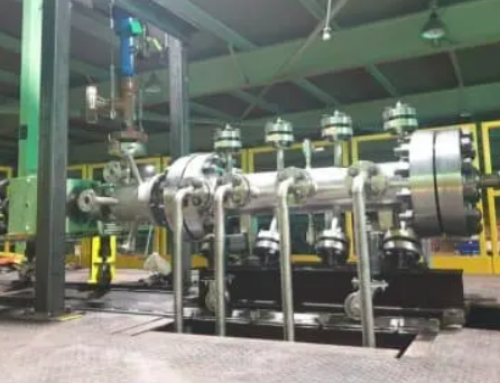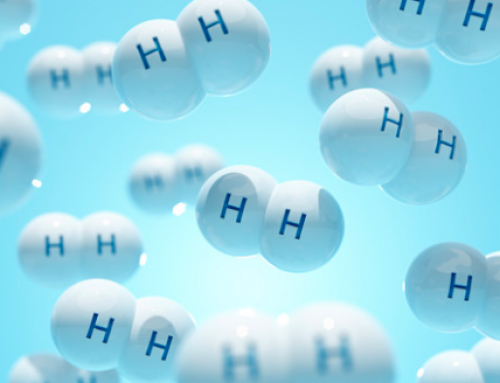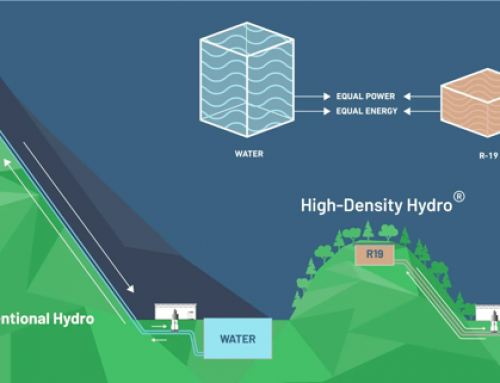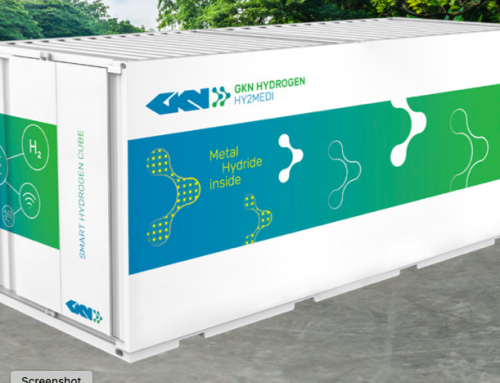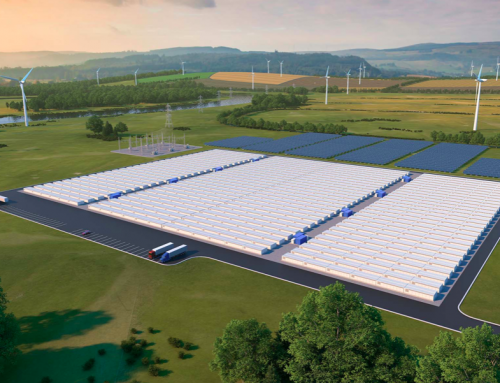By Julian Singer
Nel ASA is a Norwegian company that claims to be not only the first but also the largest manufacturer of electrolysers in the world. It started as a part of Norsk Hydro in 1927 at a time when Norway was beginning to devote some of its huge potential for hydroelectric power to producing fertilisers, in which one key step is the production of hydrogen. Using the technique of electrolysis that had been developed in the late 19th century, Nel installed a large set of electrolysers at the Vemork hydroelectric plant in Telemark.
This plant became famous during World War II when Norwegian scientists revealed that the electrolysers were being used to produce heavy water[1], which was of use in the development of atomic bombs. France bought Norway’s stock of heavy water in 1940 but production continued during the German occupation. As has been recounted in books and films of varying validity, several attempts were made to put the Vermork plant out of operation, eventually with success in 1943.
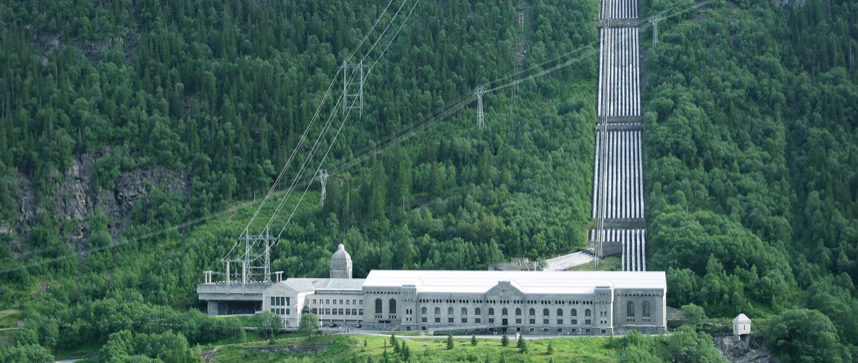
The hydroelectric power plant at Rjukan in Norway (www.hydro.com)
After the war Nel continued to develop its electrolysers, starting commercial sales in the 1970s and opening what it claims was the world’s first hydrogen re-fuelling station in Reykjavik in 2003 and listing on the Oslo stock exchange in 2014. Its technology was based on the alkaline technique, so-called because the electrolyte is an alkaline rather than an acid. In order, presumably, to broaden its appeal Nel bought in 2017 a leading developer of the main competitive technology which uses a polymer electrolyte membrane. This is Proton OnSite, an American company with a factory in Connecticut. There are pros and cons to both techniques in terms of cost, efficiency, purity of hydrogen and rapidity of response, so there is an advantage in being able to supply both.
Nel expanded further in 2015 by acquiring H2Logic, a Danish developer of hydrogen re-fuelling stations. These stations combine an electrolyser with hydrogen storage and delivery, so that hydrogen can be provided on-site from electricity. The company has 120 such stations delivered or in progress in fourteen countries.
Backing up its claim to be the largest electrolyser manufacturer in the world, Nel and Proton OnSite have sold over 3,500 units since their inception and claim to have a pipeline of orders equivalent to 22 GW of electrolyser power. One recent order from the UK was for the H100 Fife project, which will test the feasibility of using hydrogen for heating in 300 existing homes.
However, in spite of what appears to be a varied market with strong demand, Nel has made a loss on its operations every year since at least 2013. In 2021 this operating loss amounted to £48 million on a total revenue of £66.5m[2]. The final net loss was £140m. As recently reported another electrolyser manufacturer, ITM Power, shows similar trends (Why has ITM yet to make a profit? Greenbarrel, Feb2022).
Stock market performance has also been very similar to ITM’s, sluggish for many years then jumping in the second half of 2020 before dropping back again. Market capitalisation is also high, currently £1400m, as is the presence of one large shareholder: in this case Clearstream Banking S.A., a subsidiary of Deutsche Borse, which holds 58 per cent of the shares.
It seems that until government or industry makes a significant commitment in at least one of hydrogen’s major markets (commercial vehicles, residential heating or storage) the producers of hydrogen are doomed to remain loss making.
[1] Heavy water contains deuterium instead of one or both hydrogen atoms. Deuterium is hydrogen but with a neutron as well as a proton in the nucleus. This extra mass makes it useful as a moderator of nuclear fission products.
[2] Nel’s finances are quoted in Norwegian Kroner. They are reported here at an exchange rate of NOK12=£1

